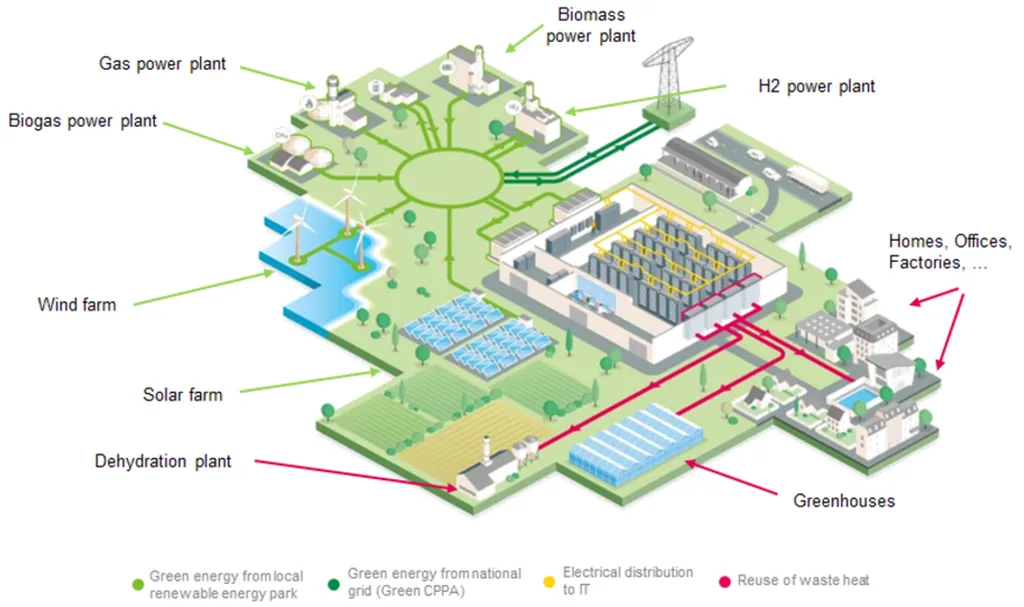The data centre industry is at a crossroads, with the sector’s future hinges on its ability to balance exponential growth with environmental responsibility. The sector’s energy consumption is skyrocketing, driven by the proliferation of AI technologies and the insatiable demand for digital services. This surge in demand is pushing data centres to rethink their energy strategies, with a growing number of operators turning to renewable energy sources and innovative technologies to achieve carbon neutrality and even carbon negativity.
The transition to clean energy is not merely an environmental imperative but also an economic one. Hyperscale cloud providers like AWS, Microsoft Azure, Google Cloud, Meta-Facebook, and Apple are leading the charge, procuring massive amounts of renewable energy through Power Purchase Agreements (PPAs). This trend is not only driving the development of the green grid but also creating new economic opportunities, from green jobs to clean tech investments. The data centre industry is thus becoming a catalyst for a broader economic transformation, one that prioritises sustainability and resilience.
However, the path to a carbon-free future is fraught with challenges. The increasing power densities in data centres, coupled with the growing demand for AI-driven computing, are straining the grid and raising concerns about power availability. Moreover, the intermittent nature of renewable energy sources poses a significant hurdle in achieving 24/7 carbon-free operations. This is where innovative technologies like solid oxide fuel cells (SOFC) and advanced energy storage systems come into play. These technologies can provide on-premise, clean energy generation, extending power to grids that are not yet green 24/7 and enabling data centres to act as energy contributors rather than mere consumers.
The concept of “Bring Your Own Power” (BYOP) is emerging as a game-changer, allowing data centres to procure and generate their own clean energy. This shift not only alleviates the pressure on the grid but also empowers data centres to take control of their carbon footprint. The idea of Absolute Zero—a target that goes beyond carbon neutrality by physically removing greenhouse gases from the atmosphere—represents the pinnacle of this ambition. While challenging, this goal underscores the industry’s commitment to driving meaningful change and setting a new standard for environmental responsibility.
The implications for the market are profound. As data centres transition to clean energy, they are reshaping the energy landscape, driving demand for renewable energy projects, and fostering innovation in energy storage and generation technologies. This shift is also influencing policy and regulatory frameworks, as governments and institutions recognise the critical role of data centres in the broader energy ecosystem. The data centre industry is thus not only transforming itself but also catalysing a broader transition towards a sustainable and resilient energy future.
In the end, the future of the data centre industry will be defined by its ability to innovate and adapt. By embracing clean energy technologies, driving economic transformation, and setting ambitious targets like Absolute Zero, the industry can lead the way towards a carbon-free future. The choices made today will shape the sector’s trajectory for decades to come, and the stakes could not be higher. The data centre industry stands at the precipice of a new era, one that demands bold action, visionary leadership, and an unwavering commitment to sustainability. The journey towards a carbon-free future is fraught with challenges, but the rewards—both environmental and economic—are immense. The time to act is now, and the data centre industry is rising to the challenge.

